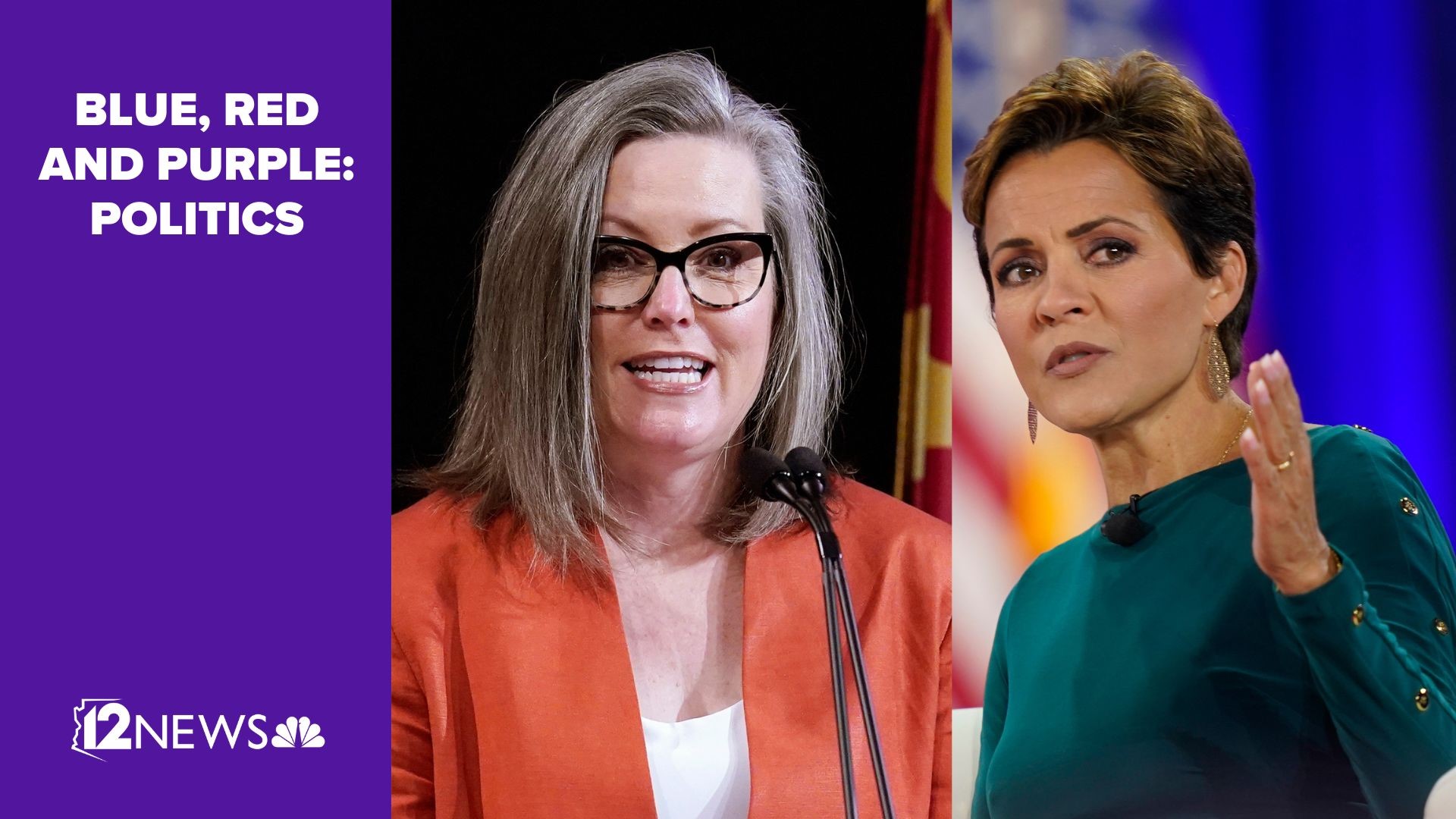PHOENIX — Democrat Katie Hobbs' campaign has made it known she wants changes in the format for what might be Arizona's only televised gubernatorial debate.
Her Republican opponent, Kari Lake, is taunting Hobbs in a Twitter video: "To make things even easier for you, I'll allow you to choose the moderator. Hell, I'll even let you write the questions."
Will Hobbs and Lake ever stand on the same debate stage? And what if they don't? Here are four things you need to know:
'Super Bowl' size audience
The hourlong debate is more than two months away.
It's scheduled for 6 p.m. Wednesday, Oct. 5, in the Phoenix studios of Arizona PBS. Ted Simons, host of "Arizona Horizon," will be the sole moderator.
The date falls one week before early ballots are mailed to Arizona voters.
The event's reach in the state will rival the Super Bowl's, according to invitations to the candidates from the debate organizer, the Arizona Citizens Clean Elections Commission.
The debate will be broadcast live over dozens of TV and radio stations, including 12News. Several newspaper websites will livestream the debate.
In addition, "PBS NewsHour" has agreed to livestream the debate on its web site, which reaches millions of viewers.
PREVIOUS REPORTING: Republicans square off in raucous Arizona governor debate
What does Hobbs want?
It's not unusual to see gamesmanship before campaigns agree to a debate.
Hobbs wants more than a higher lectern or different camera angle.
"We will be seeking changes to the format to ensure that Arizona voters get a robust policy debate based on fact, instead of regurgitated lies about the 2020 election," according to a spokesman for the Democratic candidate for governor.
The spokesman, Joe Wolf, said Monday: "We have every intention of participating."
The Democratic secretary of state's apparent focus is reining in Lake, a former TV news anchor who spent almost 30 years in front of a camera.
The Trump-backed Lake used the Republican primary debate in June as a platform for lies about the 2020 election. At times, Lake suggested she should run the debate.
The debate itself was widely viewed as a circus, which explains its millions of digital views.
As of Monday, Hobbs' team had not presented its ideas to the debate organizers, according to emails reviewed by 12News.
Lake's offer to let Hobbs pick the moderator is somewhat dubious. Lake has singled out certain reporters for harsh treatment (disclosure: I am one of them) and has refused to talk to major media outlets.
Are the candidates required to debate?
There's no requirement that Hobbs and Lake take part in any debate, including this one.
Debates sponsored by the Clean Elections Commission are a given in every election cycle. The commission, with its broadcast partner Arizona PBS, sponsors dozens of debates for legislative, congressional and statewide offices.
One of the commission's roles is to provide public campaign funding for candidates who agree not to accept money from outside sources. Clean Elections candidates must take part in these debates.
But with money flooding elections, fewer candidates are "running clean," as Clean Elections candidates are known.
Hobbs and Lake are raising their own money and being supported by outside groups. So they don't have to participate in these debates.
Do debates matter to voters?
There's some debate about that.
The most infamous debate flub in recent Arizona history provides one answer.
Remember Jan Brewer's 13 seconds of silence during the 2010 gubernatorial debate?
The Republican Brewer had been elevated from secretary of state to the governor's office just nine months earlier, after Democratic Gov. Janet Napolitano was picked for incoming President Barack Obama's Cabinet.
Just a few minutes into the debate, Brewer suddenly froze midsentence as she was describing her administration's accomplishments.
"We have done everything we could possibly do …," she said, her voice trailing off, her bewildered gaze turning down to the notes in front of her.
Thirteen seconds later, Brewer gathered herself with a grammatically incorrect transition: "… We have did what was right for Arizona."
Political consultant James Carville said it was the biggest mistake he'd even seen in a debate.
So guess who won the election two months later? Jan Brewer thumped Democratic Attorney General Terry Goddard by 12 points.
"There is absolutely a risk that something can happen on the big stage, and it can have a negative effect," said Paul Bentz, vice president of research and strategy at Phoenix-based HighGround Consulting.
HighGround worked on the Brewer campaign. Bentz said he and his colleagues didn't think much of Brewer's pause when it happened. "It wasn't until the internet took it and ran away with it," he said.
Bentz said he tells candidates to limit their exposure to debates.
"'What do you gain from this?' is a bigger question," he said.
Sunday Square Off
See the latest segments from the 12News politics show "Sunday Square Off" on our YouTube playlist here.

